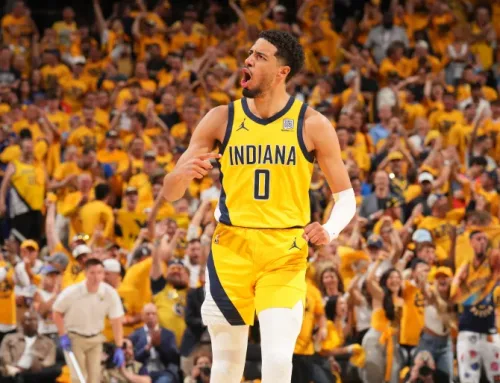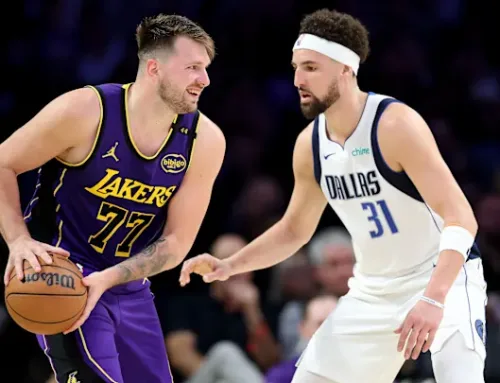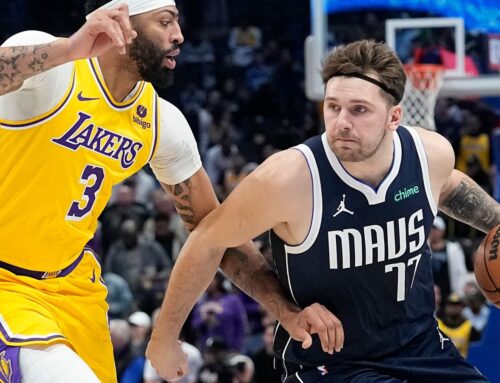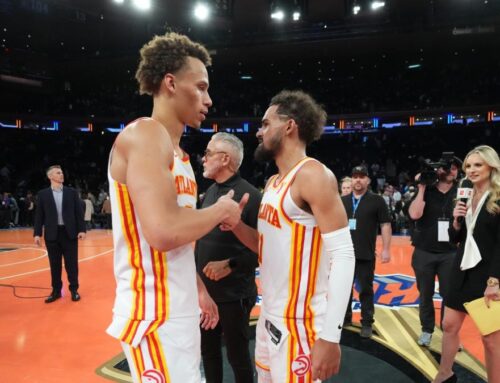By: Devin Zanskas
Last postseason, the Boston Celtics lost to the Brooklyn Nets in the first round, and it took a 50-point performance from Jayson Tatum to not get swept. It shouldn’t be lost on fans that that early playoff exit came at the hands of Brooklyn’s former Big 3 in the sole series that they were all healthy in. That didn’t stop some Celtics fans from losing their patience midway through the season, and suggesting they trade away Jaylen Brown. Following the disappointing postseason, the Celtics’ head coach, Brad Stevens, left the bench for the front office to become their next president of basketball operations in an incredibly rare move. Despite Stevens being regarded as one of the better coaches, and remaining coach for what is a lifetime in today’s coaching years, eight seasons, it was fair to be skeptical in the unorthodox transition. One of the first moves that Stevens made was to bring in a highly regarded coach, Ime Udoka, who’s been around the association since his debut as a player in 2004. The changes to the front office and coaching staff didn’t immediately translate to a more connected squad on the court that aligned with an especially accomplished roster for a relatively young core. Through 50 games, the Celtics were only .500, and looked to be heading back towards the bottom of the playoff picture.
In the last 32 contests though, they only lost six games. According to nba.com, “Through COVID-19, injuries, a new staff, and internal strife amongst players, Udoka held firm to his principles.” It was only the beginning of November when Marcus Smart called out the Celtics’ dynamic duo, “I would just like to play basketball…every team knows we’re trying to go to Jayson and Jaylen.” Once Udoka had the requisite amount of time for the Celtics players to see the greater picture, they began to share the wealth. It’s no coincidence that their phenomenal close to the year corresponded with the Celtics leaping from 19th to third in assists per game when comparing them from pre to post Allstar break. A significant help to the rest of the Celtics buying into Udoka’s vision was that they could play some combination of ball-moving big men together in Al Horford, Robert Williams, and Grant Williams. They also recognized their momentum towards contention, and acquired another drink stirrer and excellent defender, Derrick White.
Now the Celtics were off and running. Right away, they were faced with a rematch from the previous year against the Nets. With seconds remaining in Game 1, Smart sold a pump fake on a three pointer, then found a cutting Tatum, who caught the ball, spun, and finished a game winner in one motion. As close as that ending was, the Celtics would go on to sweep the Nets, beating them worse than they had previously defeated the Celtics. The road to the Finals was no cakewalk though, as the next two series each went to seven games. The Bucks and the Heat both lost 20 point per game scorers either before or during their series, but the Celtics were also without starters at one point or another throughout their playoff run. They also had two 20-point victories in the second and third rounds, which can’t be said for the Golden State Warriors. The eventual champions’ supreme experience showed in their matchup versus the Celtics in their first Finals appearance. Despite stealing homecourt, the Celtics still couldn’t overcome Stephen Curry’s historic Finals. In response, instead of trading Jaylen Brown, the Celtics have traded for Malcolm Brogdon to take some weight off of their shoulders.





